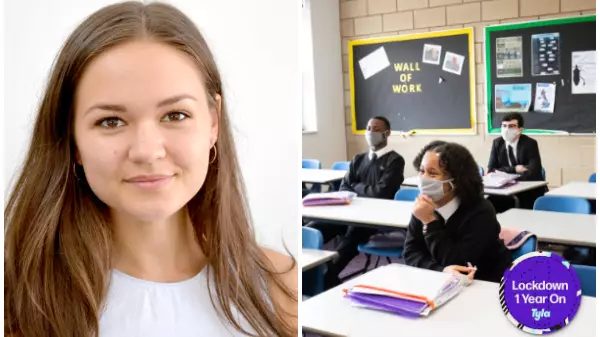
When schools were ordered to close by the government on 20th March 2020, like many other teachers, Emma Waldock assumed she'd be back in the classroom after half-term.
The English teacher at Impington International College, Cambridge remembers fielding questions from her nervous Year 8s. She tried to put their mind at ease, but was increasingly anxious herself about an uncertain future.
"I remember thinking: 'This must be serious,'" says 30-year-old Emma, who has been a teacher for four years.

The sudden announcement left teachers reeling, as they were left to pull together an entire curriculum practically overnight.
Advert
While we have all applauded (literally) the valuable work of our health workers during the pandemic, teachers have also put themselves at risk to do their job.
Gemma Eastham, a science teacher, agrees it's been tough. The 26-year-old, who has been teaching for four years, has been overwhelmed by the volume of work required by staff to ensure their 1,500 students could continue their education.

Like many, Gemma has found negative headlines about teachers' 'laziness' insulting.
Advert
"We were learning entirely new systems," she says. "We were also dealing with children who didn't have a clue what they were doing. It adds a whole element of difficulty and complications."
Rakhi Ganjree, 41, agrees. Having been a teacher for well over a decade and having worked at both state and private schools, the maths teacher knows how difficult this year has been.
"I've worked harder and more than ever," she says. "As well as adapting the way I teach, I've held one to one sessions, extra-curricular activities and tutoring for my students to make sure they're up to speed. It's been really difficult and highly stressful."
Migrating a whole scheme of teaching onto an online system has come with a whole new set of difficulties, with some students having no access to computers.
Advert
With many parents now working from home, some students were left unable to access the family computer, effectively excluding them from classes.

It was something that Rakhi felt her school struggled with. Teaching in a large comprehensive in Slough, many students do not have English as a first language, while a large proportion did not have computer access.
"We sent out stacks and stacks of paper worksheets for children to work through," she says. "Then we also had to send lots of food packages out to people.
Advert
"I do really worry for some of our younger students because they haven't had much contact time at all. Some kids in Year 8 when the pandemic first started will be in Year 10 in September, and may have to take exams without having the solid foundations that time in the classroom can give you."
Elsewhere, Emma and Gemma had to tailor schemes of work for children with limited access.
"We realised we just couldn't teach what we initially planned," Emma explains. "We had to think about what could they do on their phone if they don't have a laptop. We completely rethought a lot of our schemes and cobbled things together.
"We also had to think about the disparity between children who had their own laptop and desk, compared to the children who were sharing a room with their three siblings, or had to babysit a younger sibling."

"We were calling the children in our tutor group every week to make sure they were okay," Gemma adds. "There was definitely a disparity in work between kids who could access education and those who weren't able to."
Advert
Teachers were then hit with yet more problems. The now well-documented A-Level fiasco, which saw an algorithm assign grades, caused huge disruption as a number of students were unfairly denied their university places.
While results were reversed, Gemma was left distraught for her students taking the International Baccalaureate - an equivalent qualification to A-Levels - who had their results downgraded, but not reversed.
"We were told to send off all their coursework at the very last minute," she says. "They did make a slight adjustment, but they didn't end up with their predicted grades. I think that's definitely affected students and I've been worried about the impact that's had on them."
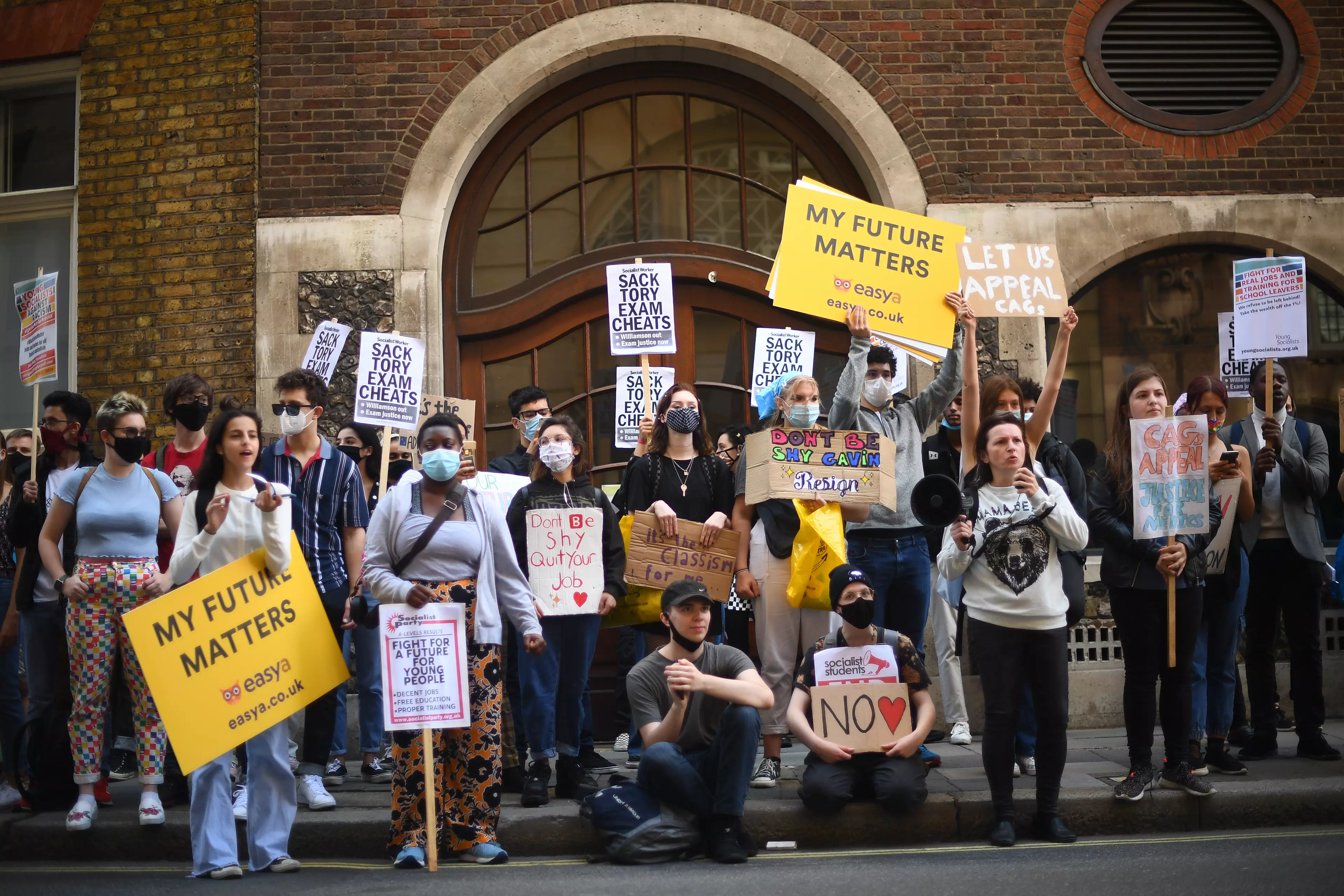
But despite the A-level catastrophe, many teachers felt optimistic for September. With cases in the UK falling, it seemed we were over the worst of coronavirus.
"I came back thinking 'everything will be fine,'" Emma admits. "I thought it would just go away."
But with year groups forced to isolate and staff falling victim to the virus within weeks, tensions started to rise.
"I remember sitting with my Year 11s and getting upset," Emma says. "Things were so close to getting back to normal and everything started falling apart.
"But I think it was good for the children to see I'm finding it hard. I'm feeling more comfortable with conversations with our wellbeing.
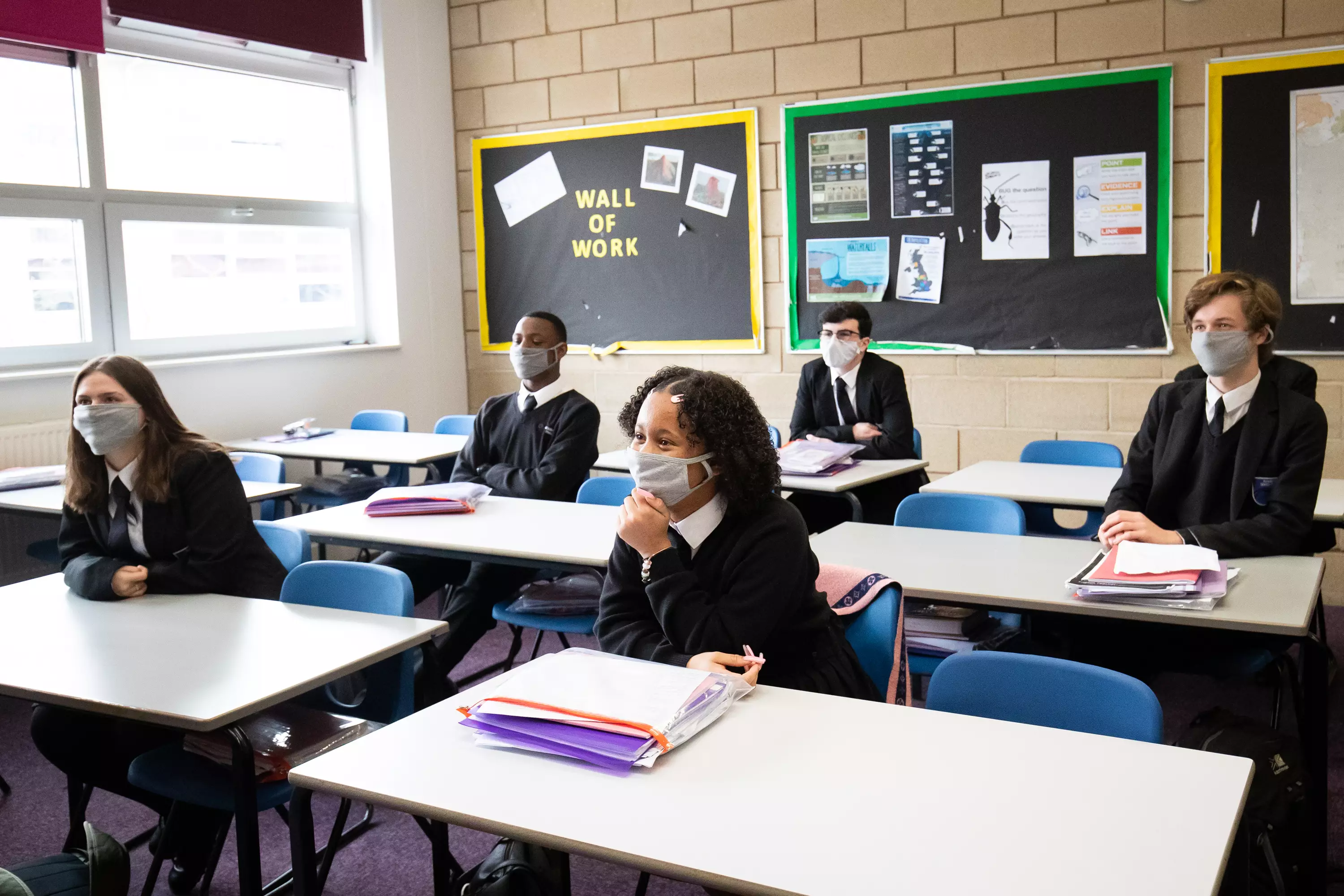
"It's been the most stressful year of my career. I can't foresee any other year now which would be as difficult as this. But if we've done this, we can do anything teaching-wise.
"The levels of anxiety are going to be there for a while. We're not out of this yet."
Rakhi added that she has seen children appear genuinely fearful of coming to school. "Both teachers and pupils are tense," she says. "It's so sad as covid is robbing us teachers the ability to enjoy the job to the full, and it's robbing children of their happiness.
"School is meant to be the best years of your life and for some of our students, their memories will be marred by this time.
"Luckily, our headteacher has been very supportive and making sure we're all getting the best out of a bad situation."
With cases skyrocketing, Gemma, Emma and Rahki all welcomed another government U-turn in January that saw schools return to online learning.
Schools in England have since returned full-time with strict social distancing measures in place. Students and faculty are required to wear masks at all times, classrooms have been rearranged to provide maximum space and teachers are now subjected to twice-weekly lateral flow testing.
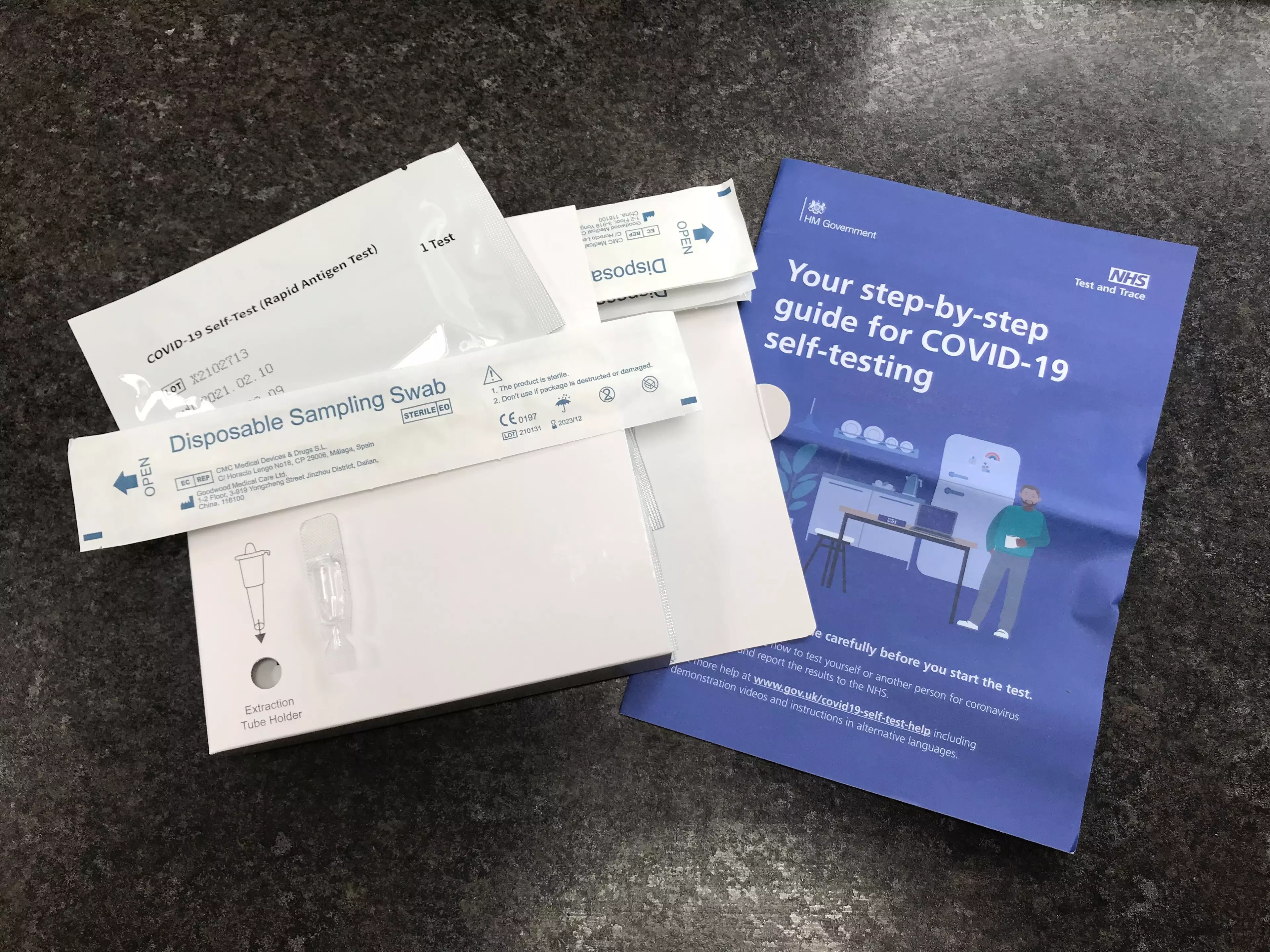
While Gemma and Emma are excited to see their students in person again, there are fears they could catch the potentially deadly virus at work.
While there were calls for teachers to be bumped up the vaccination queue, it was ultimately decided to keep vaccinating by age and vulnerability.
"As a young, healthy person, it was important that the most vulnerable people were vaccinated first," Gemma says. "But I think once they are vaccinated, it would have been nice to be vaccinated next. We are more at risk than most other people.
"I don't know any other people who are going to be in a relatively enclosed space with 35 other people."
And the pressure has not let up, with teachers now responsible for assigning GCSE and A-Level grades to students after last summer's fiasco.
"We can't win," Gemma says. "Last year, people said just let the teachers decide. Now, people are complaining it's not fair because teachers are biased."
There has, however, been a newfound appreciation for the work teachers do. A study by the Economic Policy Institute found that 80 per cent of parents have newfound respect for teachers, and 77 per cent believe that teachers should be paid more.
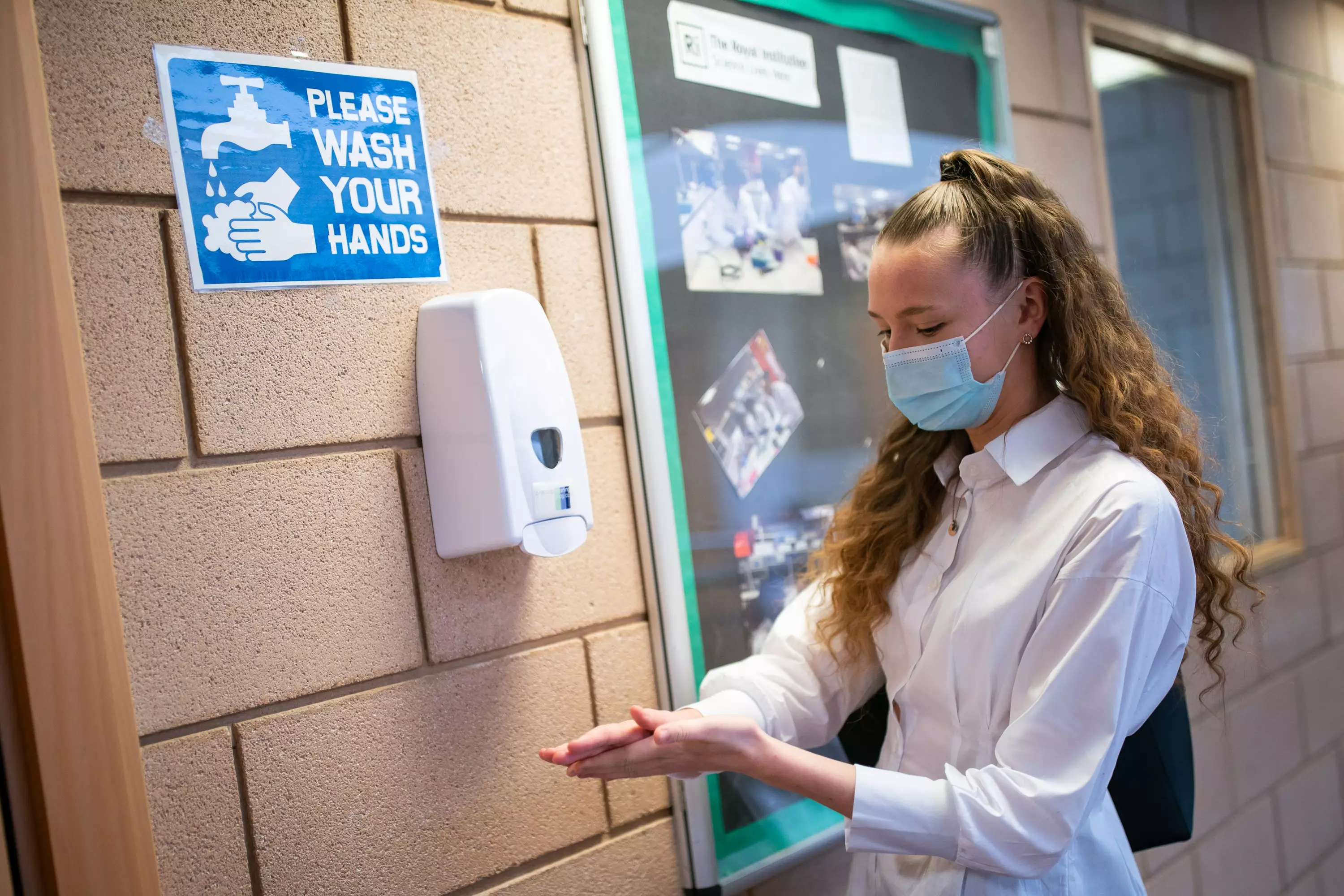
While Gemma and Emma are pleased that parents finally understand what it takes to be a full-time educator, they're convinced any kudos will be short-lived.
"With both teachers and the NHS, we're already losing appreciation for everything they've done. I think people lose sight of things quickly," Emma says.
"But we don't do our jobs for praise. We become teachers because we want to look after young people and ensure they get the best results.
"I think sometimes people forget that. It's all for the children."
Featured Image Credit: Emma Waldon/PATopics: Children, UK News, Life News, Life, Coronavirus, Covid-19